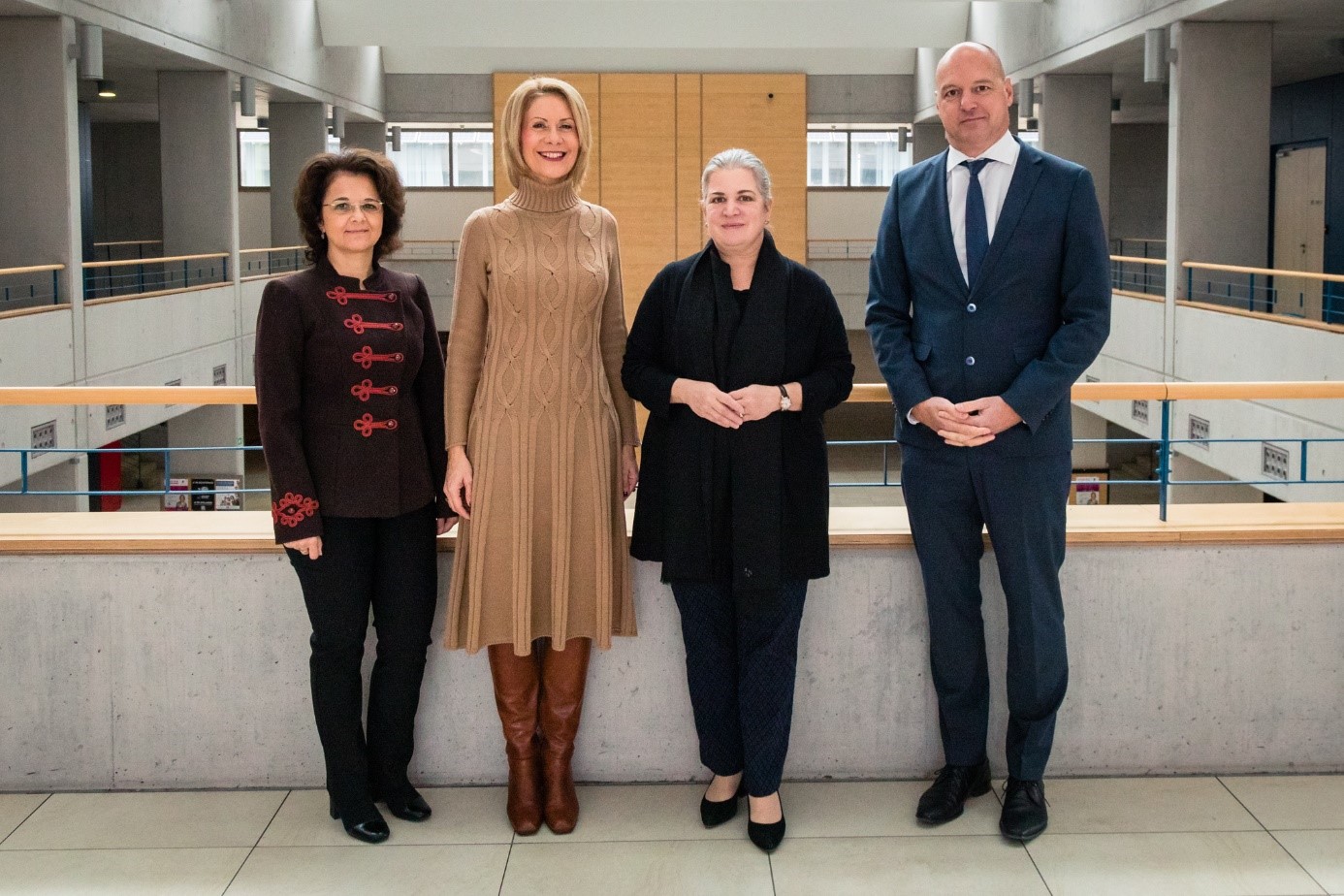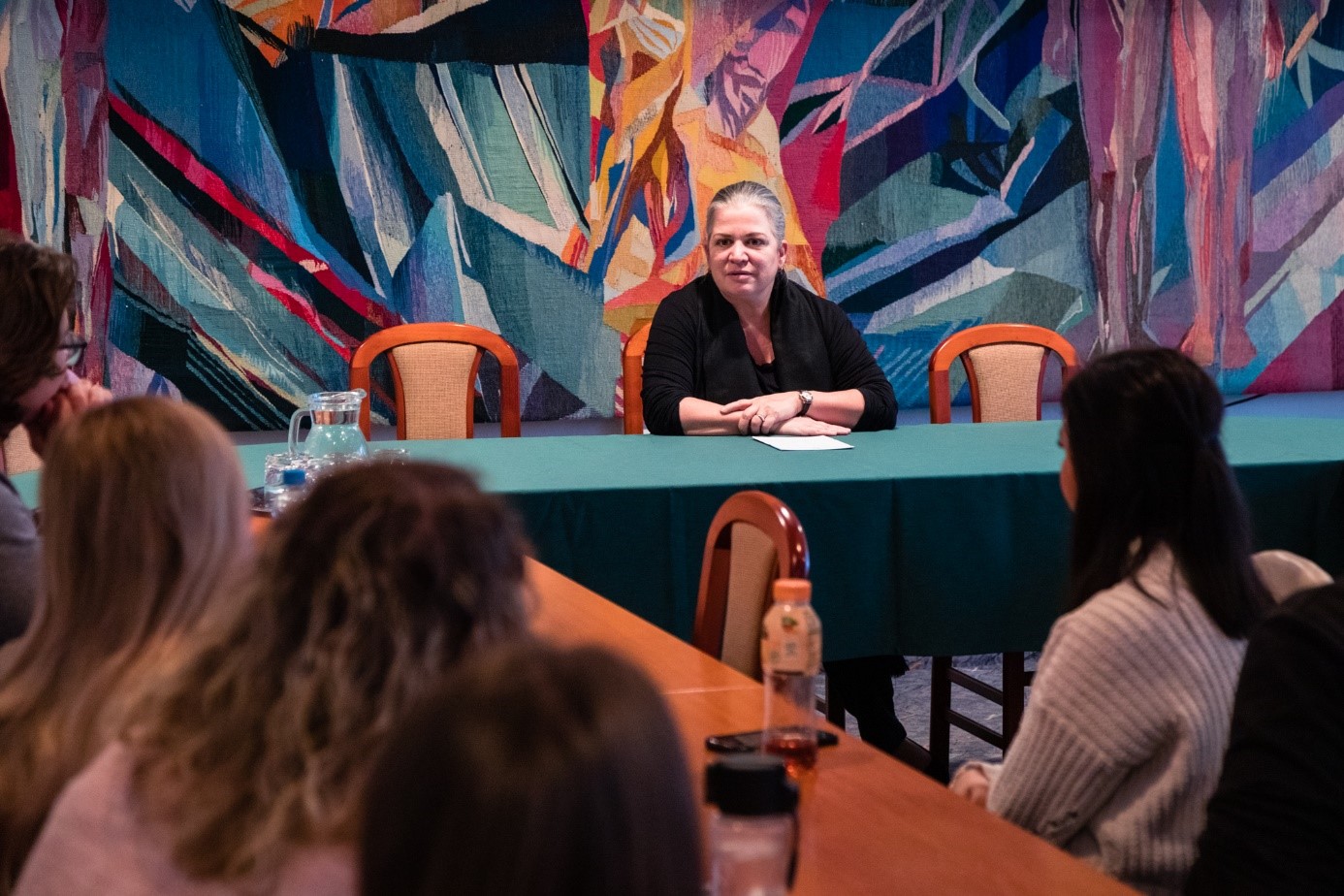Canadian Ambassador: Széchenyi University is an open, 21st century, student-friendly institution
Caroline Charette, Canada's Ambassador to Budapest, visited the Győr campus of Széchenyi István University to learn about the educational, research and third mission activities of the university. During her program, the diplomat gave a lecture on Canada to the students of the Deák Ferenc Faculty of Law and Political Sciences.
Around a thousand international students study at Széchenyi István University, and the teachers and researchers are also involved in international projects and research networks. For this reason alone, it is important for the institution to continuously strengthen its international relations, and the visit of Canadian Ambassador Caroline Charette to the Győr campus served this purpose.
Dr. Eszter Lukács, Vice-President for Global Strategy, introduced the past and present of Széchenyi University to the diplomat, highlighting the high quality of its teaching and research activities, its decades-long tradition and knowledge base in the fields of technical engineering and technology, and its third mission activities. In the latter context, she reported on major investments that will contribute significantly to the future development of the region, such as the construction of the Science and Innovation Parks in Győr and Zalaegerszeg, and the Health Technology Campus in Győr.
 Dr. Emese Bukor, Dr. Eszter Lukács, Caroline Charette and Prof. Dr. Dániel Feszty at the New Knowledge Space of Széchenyi István University
Dr. Emese Bukor, Dr. Eszter Lukács, Caroline Charette and Prof. Dr. Dániel Feszty at the New Knowledge Space of Széchenyi István University
(Photo: Csaba József Májer)
The guest was also given a tour of the university by two of the university's staff members, who previously taught at Carleton University in Ottawa and are Canadian citizens. Dr. Emese Bukor informed, among other things, that the institution places great emphasis on the development of English-language publication writing skills, while Dr. Dániel Feszty, Professor at the Audi Hungaria Faculty of Automotive Engineering, described the particularly close relationship between the university and Audi Hungaria Zrt.
Caroline Charette said at the meeting that Győr is an open, 21st century university that supports students from the very beginning, in particular by involving them in projects and the innovation ecosystem. She said the institution has the advantage of being young, because it can focus immediately on the most topical areas. She described the university's cooperation with industry and the business sector as a special feature.
As part of the program, the Ambassador gave a lecture on Canada to the students of the Deák Ferenc Faculty of Law and Political Sciences of the University, in which she introduced the country. She mentioned several interesting facts about Canada, which is the second largest country in the world and about one percent of its population, about 350,000 people, are of Hungarian origin. Many came there after the 1956 revolution was crushed. "Openness, providing shelter is the basis of the Canadian way of thinking and living, these are Canadian values," she said. She also noted that at the time Canada was the first country to support Hungary's membership of NATO, and that economic relations between the two countries are excellent.
 Ambassador Caroline Charette gave a lecture to the students of the Deák Ferenc Faculty of Law and Political Sciences of the Széchenyi István University
Ambassador Caroline Charette gave a lecture to the students of the Deák Ferenc Faculty of Law and Political Sciences of the Széchenyi István University
(Photo: Csaba József Májer)











